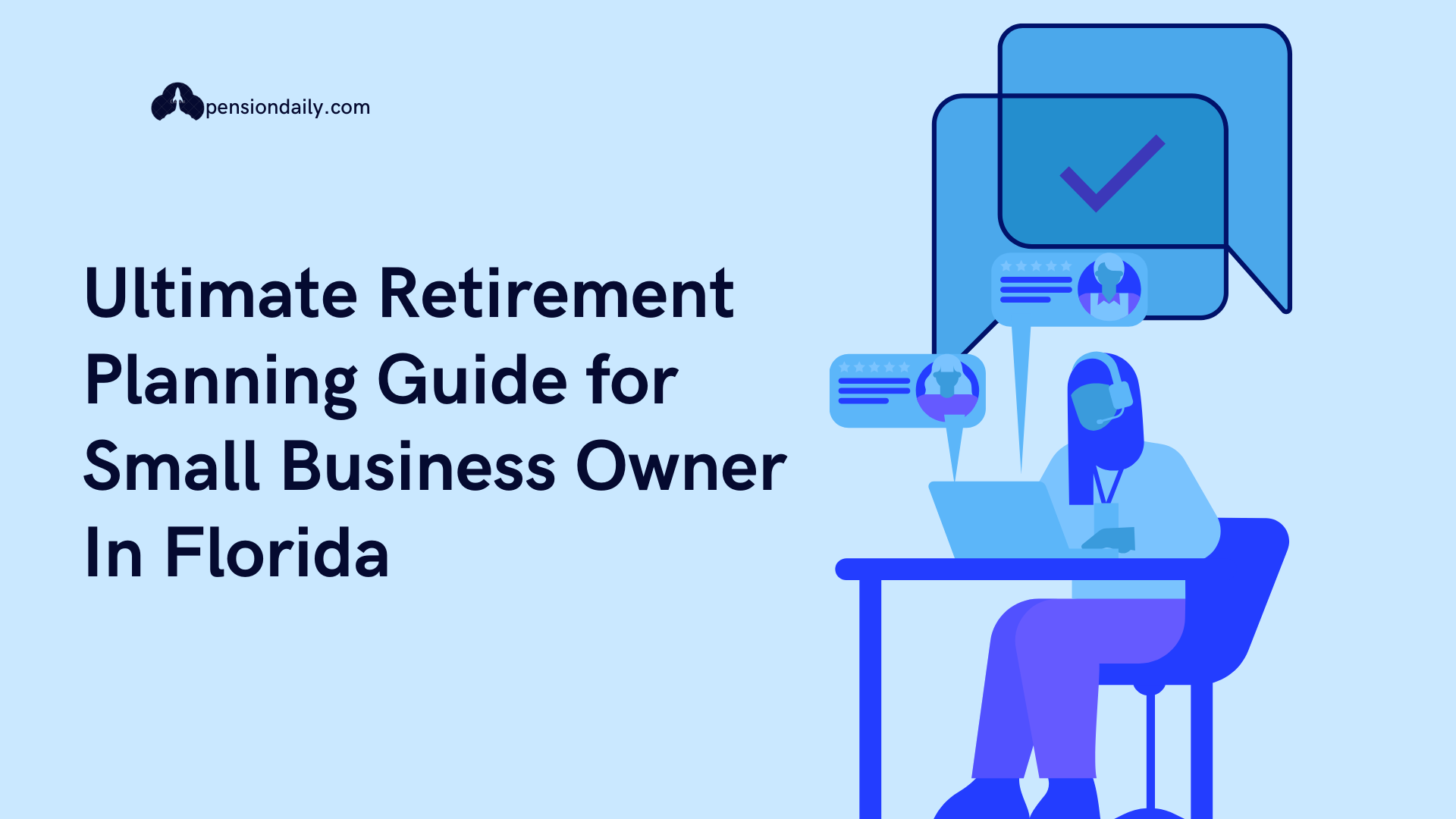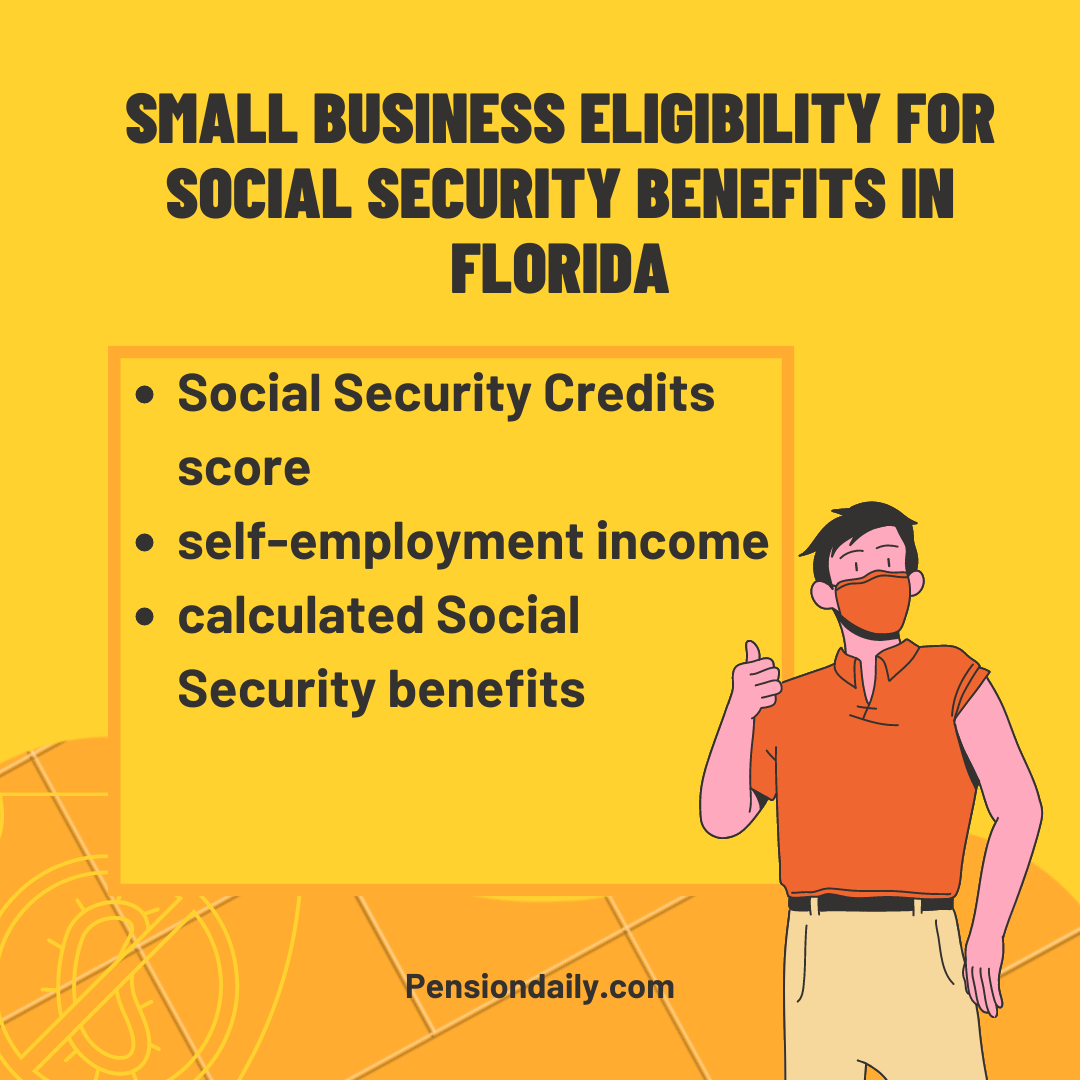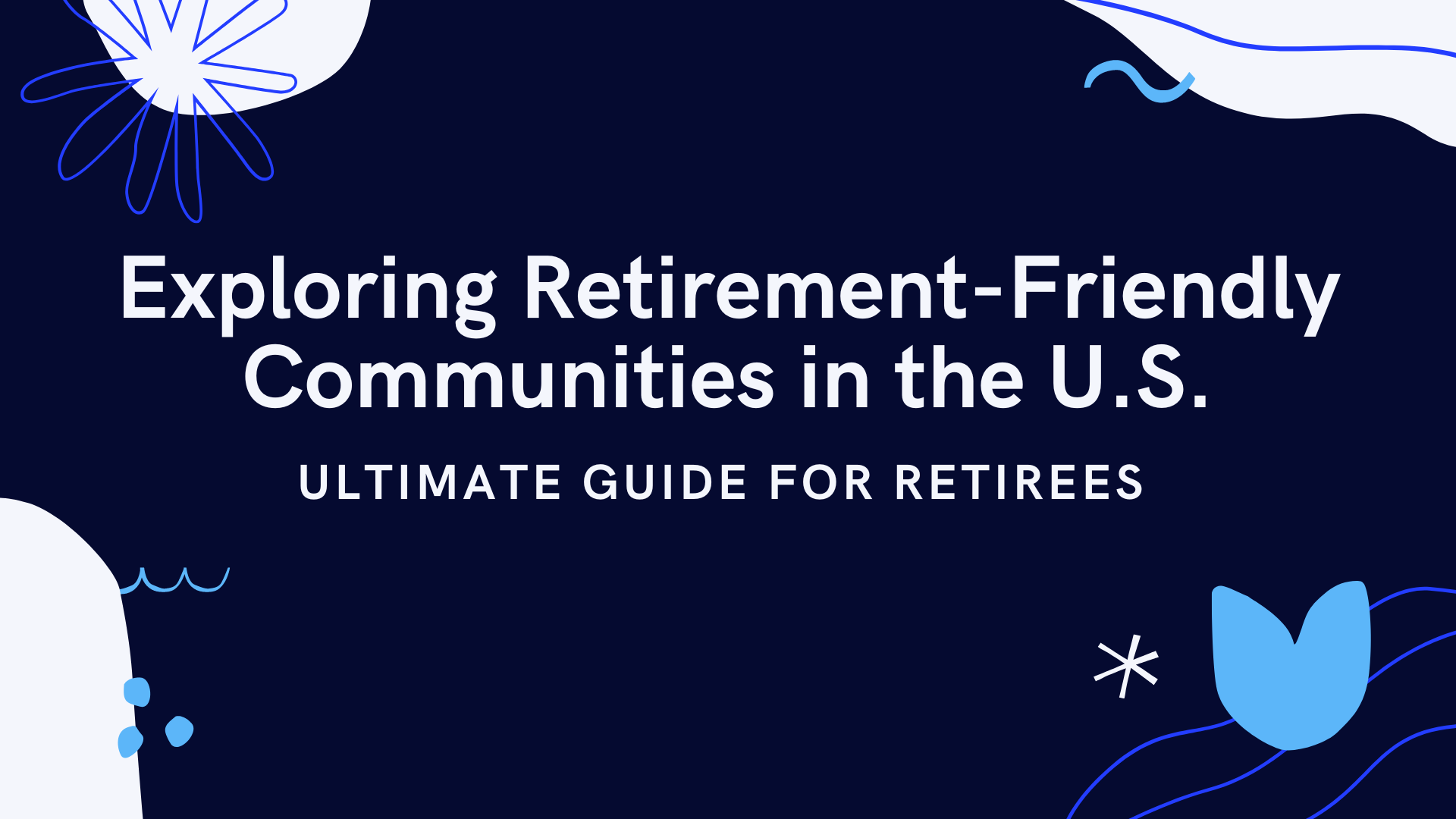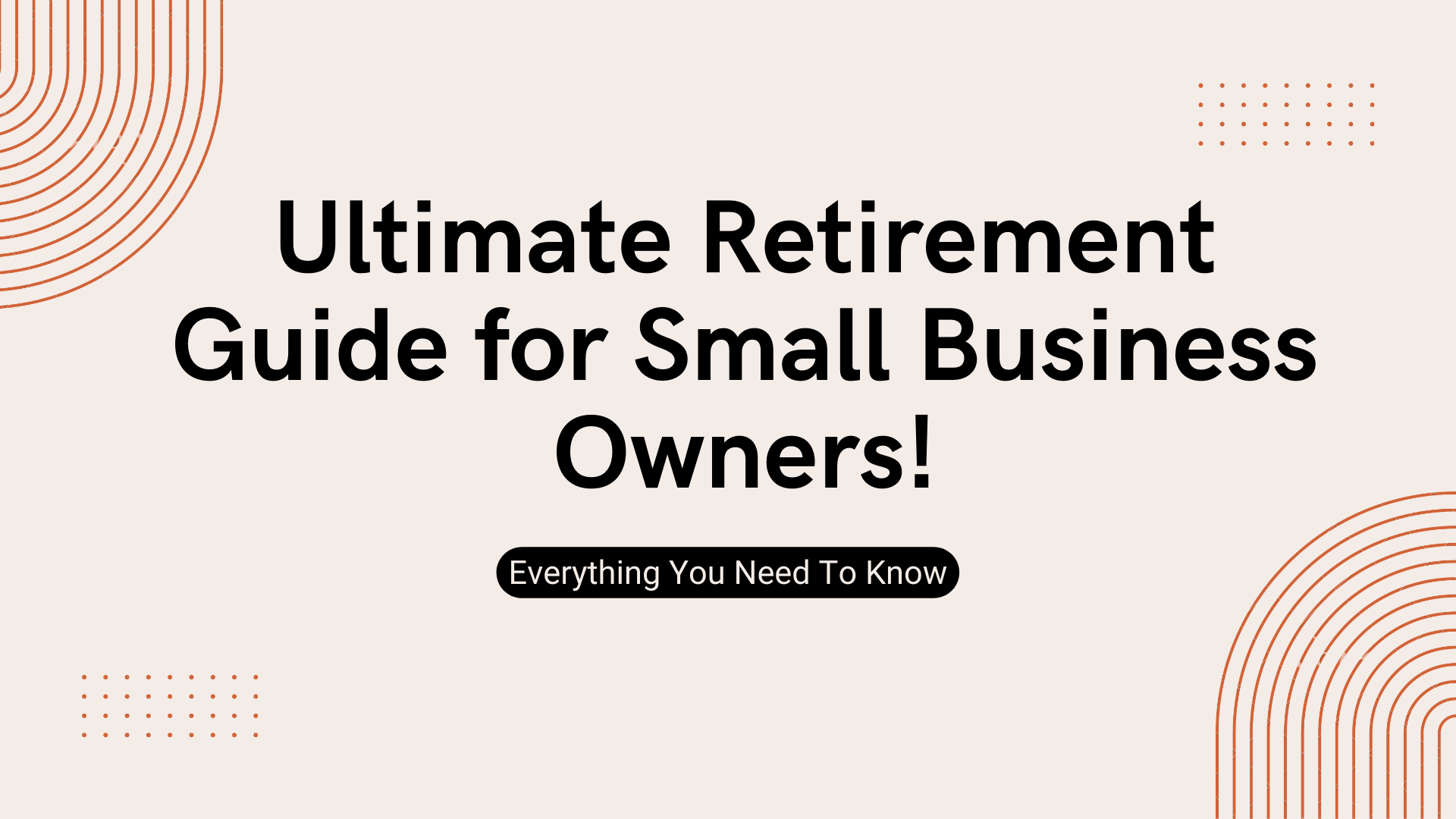Ultimate Retirement Planning Guide for Small Business Owner In Florida

As small business owners in Florida, we input all our passion into building successful businesses, but it's easy to neglect planning for our own retirement.
In this article, we'll navigate the unique challenges we face and empower ourselves with
knowledge and tools. Together, let's create a secure financial future, where our inputs is rewarded, and we can truly enjoy the rewards of our hardwork.
Table of Contents
Importance of Retirement Planning for Small Business Owners in Florida
Just imagine that after all the years you have put into developing and securing your business that you may one day leave it in nearest future. As business owners, it is crucial to consider what will be the future of our business once we retire.
Do you hope to pass it on to a family member or an heir? Or Do you plan on selling the business to someone else entirely?
These questions will help you understand how committed you want to be after your retirement and the plan you need to make to make sure your retirement lifestyle is secured.
Another important reason to have an exit strategy is because you may need to leave the business earlier than expected.
Example If you encounter a health challenge that forced you to transition out before you had planned, what will be your next the hope for a better retirement experience?
Understanding Retirement Plans
Small business owners can open many of the same retirement accounts as regular employees.
Putting your savings into tax-advantaged retirement accounts is one of the most effective ways to save and grow your wealth for retirement as a business owner.
Examples of retirement plans that can work for you and provide benefits are, IRA (traditional or Roth), Solo 401(k), SEP IRA, Simple IRA
Florida-Specific Retirement Planning Considerations:
As small business owners in Florida, we have the privilege of not only enjoying this beautiful environment but also navigating retirement planning with a touch of Florida flair.
State Tax Considerations
Florida's tax landscape sets it apart from many other states. As a small business owner, understanding the tax implications can have a significant impact on your retirement plan.
Florida has no estate or inheritance tax, and property and sales tax rates are close to national marks. That’s a good advantage for small business owners to make retirement investments in Florida.
Florida Retirement System (FRS)
The FRS investment plan is 401(k) investment plan designed to provide retirement benefit business owners. It is designed primarily for individuals who want greater control over their retirement plan and also want flexibility in how their benefit is paid at retirement.
The amount of your future benefit is determined by a formula, based on your earnings. Eligibility requirements are involved for small business owners who want to participate.
Key Considerations for Small Business Owners FRS Participation
The FRS is primarily designed to provide retirement benefits to state and local government employees. However, certain small business owners may also be eligible to participate. It is essential to determine whether your business activities meet the criteria for FRS participation.
The eligibility requirements are influenced by factors such as the nature of your business, the number of employees, and the relationship between your business and government entities.
1. Business Structure and FRS Participation
The structure of your small business plays a significant role in determining your eligibility for FRS participation. The FRS generally considers three types of business structures:
Sole Proprietorship
As a sole proprietor, your business and personal finances are often intertwined. In such cases, FRS participation is typically not available, as the FRS primarily covers employees of government entities.
Partnerships
If you operate your business as a partnership, your eligibility for FRS participation depends on the specific circumstances of your partnership agreement. If your partnership has government entities as partners, or if the partnership operates in conjunction with a government contract, you may be eligible for FRS participation.
Corporations and LLCs
Corporate structures, including limited liability companies (LLCs), present more complex considerations for FRS participation. If your corporation or LLC has a direct contract with a government entity, you may be eligible for FRS participation. However, if your corporation or LLC does not have a direct government contract, FRS participation may not be available.
2. Evaluating FRS Participation for Small Business Owners:
Determining whether FRS participation is viable for your small business requires careful evaluation. Consider the following factors:
Long-Term Plans
Assess your long-term plans for your business and retirement. If you anticipate selling your business or transitioning into a different phase of your career, FRS participation may be less crucial. However, if you plan to continue operating your business into your retirement years, FRS participation can provide valuable retirement benefits.
Comparative Retirement Options
Evaluate the FRS benefits and compare them to other retirement options available to small business owners, such as individual retirement accounts (IRAs), Simplified Employee Pension (SEP) IRAs, or solo 401(k) plans. Compare the potential benefits, contributions, investment options, and flexibility of these alternatives with the FRS to determine which retirement avenue aligns best with your financial goals.
Consult with Financial and Legal Professionals
Given the complexities involved, it is highly recommended to consult with financial advisors and legal professionals specializing in retirement planning and small business considerations. They can provide personalized guidance tailored to your specific business structure and retirement goals.
As soon as you complete 1 year of service, you own all contributions and earnings in your account. If you leave FRS employment sooner, you own your employee contributions and any earnings on your contributions.
Your benefits are based on your contributions, the performance of your investments, and account fees and expenses.When you retire, your benefit can be paid to you as lump sum, a rollover, an annuity, a customized payment schedule,or any combination of your choice.
FRS investment plans require you to contribute 3% of your salary, beginning with your first paycheck. You cannot change the amount you contribute. Your business also contributes a fixed percentage of your gross earnings to the plan. Contribution rates are set by the Florida Legislature.
Social Security Benefits for business owners in Florida
As a business owner, you're considered both the employee and the employer. This means you are responsible for withholding Social Security from your earnings, contributing both the employer's portion of Social Security as well as your own individual portion.
Rather than withholding Social Security taxes from each paycheck many business owners don't get regular paychecks, you pay all the Social Security taxes on your earnings when you file your annual federal income tax return. This amounts to both your contribution and your business's contribution.

As a small business owner in Florida, your eligibility for Social Security benefits is determined by several factors, including
Earnings and Social Security Credits
To be eligible for Social Security benefits as a small business owner, you must have earned a sufficient number of Social Security credits throughout your working years. Credits are earned based on your self-employment income and are used to determine eligibility for retirement benefits. The exact number of credits needed for eligibility changes over time. In 2023, you earn 1 Social Security and Medicare credit for every $1,640 in covered earnings each year. You must earn $6,560 to get the maximum 4 credits for the year.
Reporting Self-Employment Income
As a small business owner, it is important to accurately report your self-employment income to the Internal Revenue Service (IRS). This ensures that your earnings are properly recorded and credited toward your Social Security benefits. Paying self-employment taxes, which include Social Security and Medicare taxes, is also necessary to build your Social Security credits.
Calculating Social Security Benefits
The calculation of Social Security benefits for small business owners is based on your earnings history, including both self-employment income and any wages earned from previous employment. The Social Security Administration (SSA) considers your highest-earning years when calculating your benefit amount. The specific formula used by the SSA takes into consideration the average indexed monthly earnings, and the age at which you begin receiving benefits can also affect the amount you receive.
Impact of Self-Employment Tax
As a self-employed individual, you are responsible for paying the full amount of Social Security and Medicare taxes, known as self-employment tax. This differs from individuals who receive wages from an employer, as their employer typically covers a portion of these taxes. The self-employment tax you pay contributes to your Social Security benefits and Medicare eligibility.
Coordination with Other Retirement Plans:
As a small business owner, you may have established additional retirement plans, such as individual retirement accounts (IRAs) or simplified employee pension (SEP) IRAs. These plans can complement your Social Security benefits by providing additional retirement income. It's essential to consider how your Social Security benefits and other retirement plans work together to form a comprehensive retirement strategy.
Conclusion
Florida is not only a place of sunshine and relaxation but also a land of opportunity when it comes to retirement planning for small business owners. By delving into the state's tax advantages, exploring the Florida Retirement System, understanding Social Security benefits, and considering healthcare options, we can craft a retirement plan that embodies the spirit of the Sunshine State.
As we begin on this journey together, let's embrace the opportunities that Florida offers and infuse our retirement plans with the same enthusiasm and passion that we bring to our businesses. By leveraging these Florida-specific considerations, we can create a retirement that blends financial security with the joy of living in paradise. So, fellow small business owners, let's make the most of our Florida advantage and embrace a retirement plan that radiates sunshine and success.



